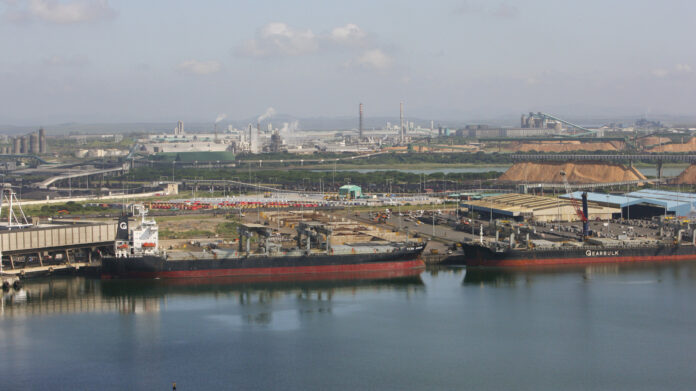
SOUTH Africa’s Minerals Council welcomed Government’s R5.8bn recapitalisation of Transnet of which about R2.9bn would be used to recommission idled locomotives – a step that would increase capacity on the country’s underperforming coal route.
It was commenting on finance minister Enoch Godongwana’s ‘mini-budget’ statement on Wednesday which was largely praised for continued fiscal consolidation in which spending is reprioritised in order to curb state expenditure.
Transnet said at a briefing on October 25 that it had reached agreements with original equipment manufacturers to obtain the spare parts for 311 idle locomotives. The locomotives shortage was partly caused by a legal dispute between Transnet and CRRC E-Loco of China and Alstom.
Bringing the locomotives back into operation would help alleviate under-performance on the coal route which industry doubts will barely reached 50 million tons (Mt) in the year ended December. Ali Motala, a manager at Transnet Freight Rail, a division of Transnet, said that his company was “resolute” in its determination to meet its 60Mt target for coal deliveries in its financial year which ends March 31.
Of the capital allocated to Transnet, R2.9bn would go towards fixing damaged infrastructure caused by severe flooding in KwaZulu-Natal in April this year.
But the Minerals Council was critical of Government for failing to outline measures aimed at improving the performance of Richards Bay which it described as “a major bottleneck for exports of chrome, ferrochrome and magnetite along with other exported and imported products”.
“The Minerals Council estimates an opportunity cost of R50bn for the industry this year when actual deliveries are measured against target,” it said. “In 2021, the industry lost R35bn using the same metric.”
Government also had not made “no firm decision” on potential public-private partnership in respect of Transnet’s rail and port infrastructure, especially the bulk mineral export corridors outside of the limited access already granted. Private sector participation in rail and port infrastructure is key to unlocking an estimated R151bn of mineral exports.
The Minerals Council said it looked forward to a Government paper on tax-free allocations (tax breaks) that might apply to offset the proposed expansion of the carbon tax. The expansion of phase one of the carbon tax will see a minimum rate of $1 per ton from 2023 to 2025. It will increase to $20 in 2026 and to at least $30/t by 2030.
The mining sector would face higher tax costs without being able to cut emissions much further, said the council. “Most self-generation projects will entail renewable energy sources though,” said the Minerals Council.
Mining companies have a pipeline of 6.5GW of renewable energy projects worth more than R100bn to reduce their reliance on Eskom’s carbon-heavy electricity supply.











